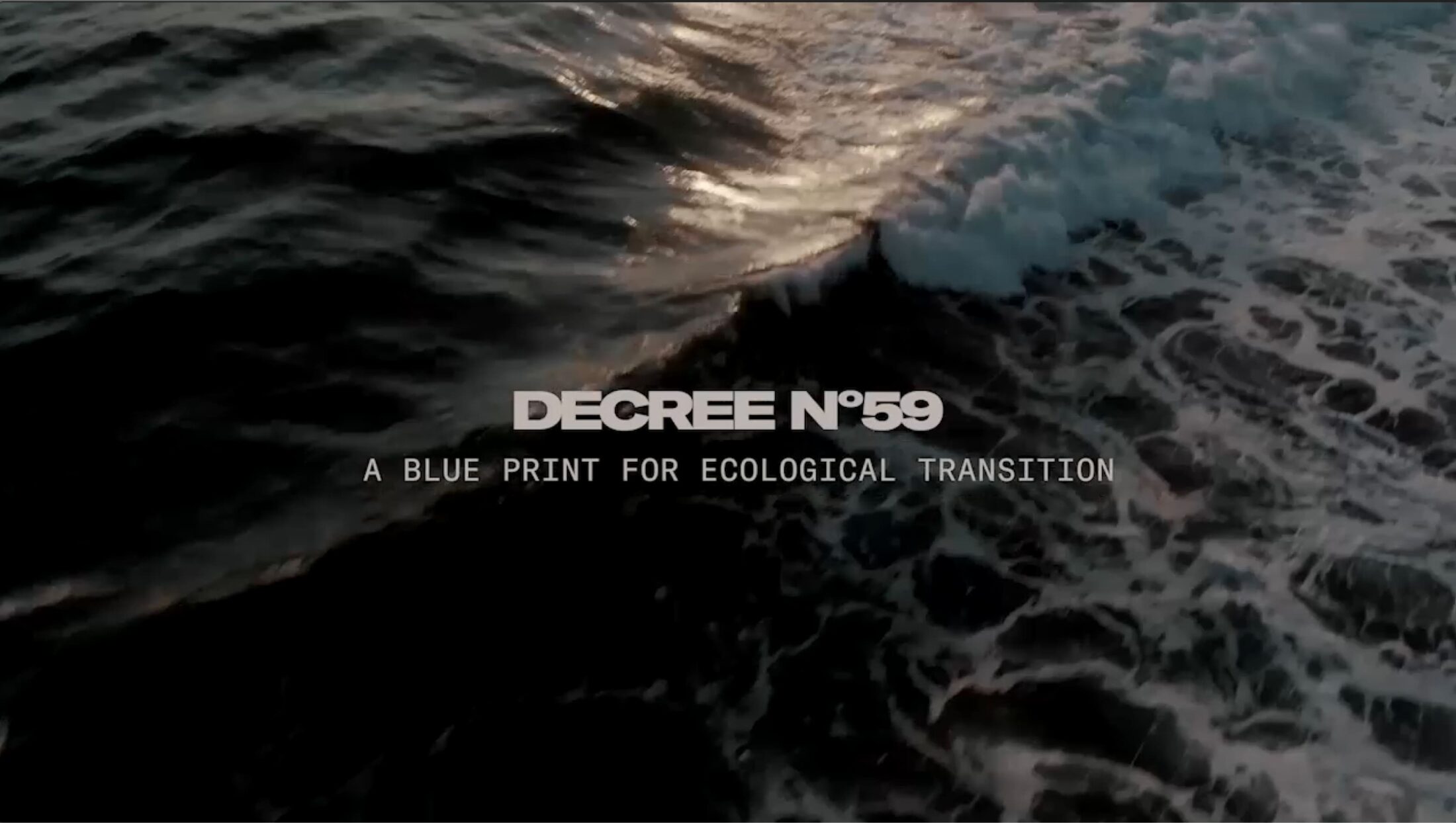
- Conceptualization
- Consultancy
- Naming
- Sustainable Narrative
Felicidad Collective collaborated with the Government of Ecuador on implementing the groundbreaking Decree 59, an initiative that redefines environmental policy by establishing the first cross-ministerial environmental ministry in Latin America. This decree fosters collaboration across various sectors, such as agriculture, finance, and energy, uniting them under a common goal: ecological transition.
In just three years, this initiative has achieved globally impactful results, including the creation of the Hermandad Marine Reserve, the largest debt-for-nature swap, and Ecuador’s commitment to decarbonization. This collaborative model not only protects biodiversity but also drives a sustainable economy and creates green jobs, setting an example for other countries in their fight against climate change.
- The context
The recent re-election brought Gustavo Manrique back as Ecuador’s Minister of Environment. Seeking to make a significant impact, Manrique approached Felicidad for guidance on how the Ministry could drive meaningful environmental change. We identified key governmental challenges: siloed operations, lack of legal frameworks binding different ministries, and limited inter-ministerial coordination. Our proposal was to establish a cross-ministerial mandate by law, ensuring that every governmental department considered ecological transition as a core priority. This approach provided Ecuador’s government with an effective tool to accelerate crucial environmental solutions for a country deeply affected by climate crises and blessed with extraordinary biodiversity.
- <span data-metadata=""><span data-buffer="">The solution
Felicidad recognized that something as seemingly simple as a name change could redefine the entire narrative for a country. The challenge lay in distilling Ecuador’s ambitious ecological goals into a ministry title, carefully choosing words to convey the importance of this mission. It was like navigating within a narrow frame—a true exercise in precision storytelling.
Yet, we succeeded, and the result was the Ministerio del Ambiente, Agua y Transición Ecológica (M.A.A.T.E, in English: Ministry of Environment, Water, and Ecological Transition). Known as “MAATE” across Ecuador, this title not only captured the essence of Ecuador’s commitment to ecological transition but also created a unifying message that resonated nationwide, setting the stage for some of the country’s most significant environmental milestones.
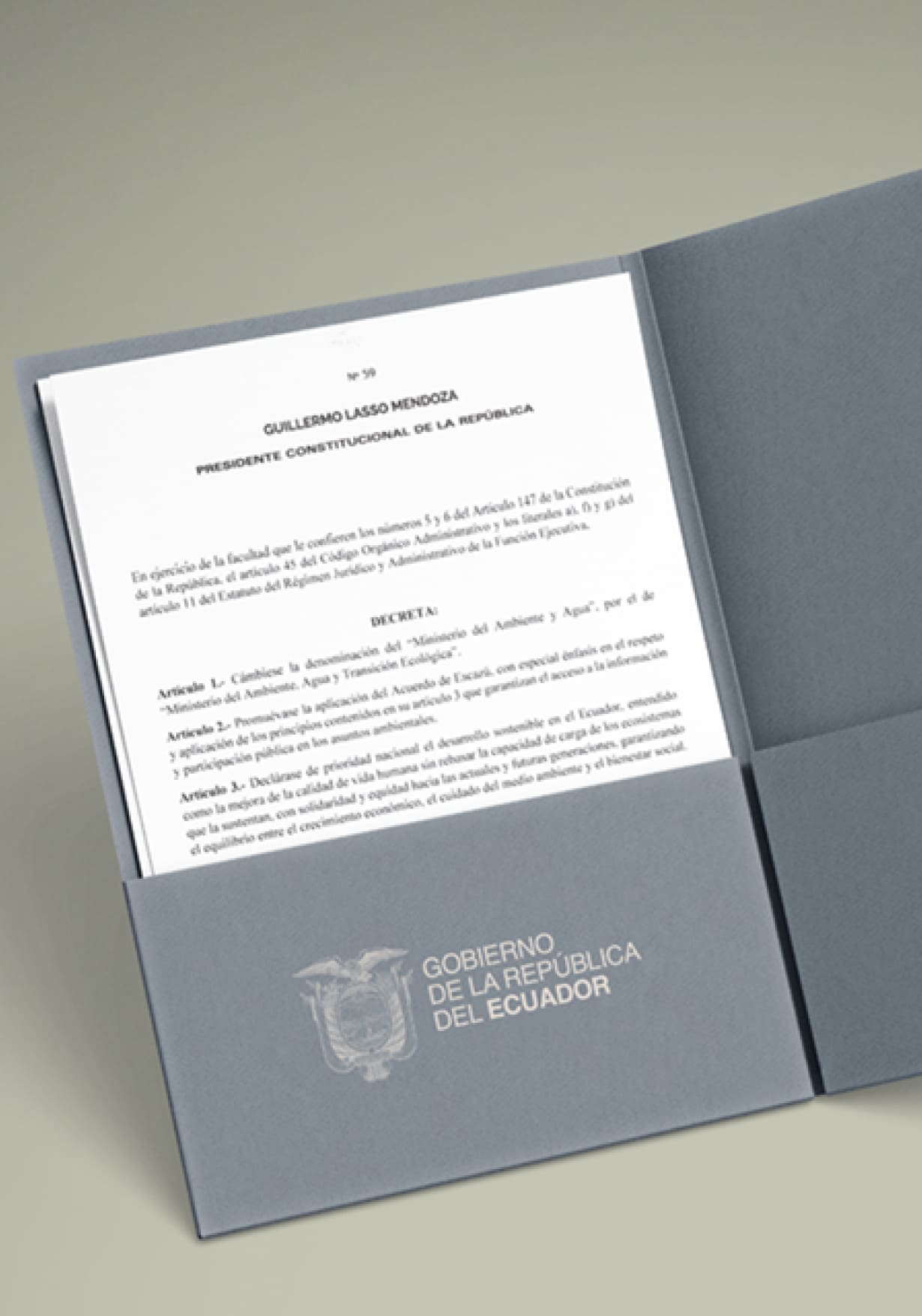
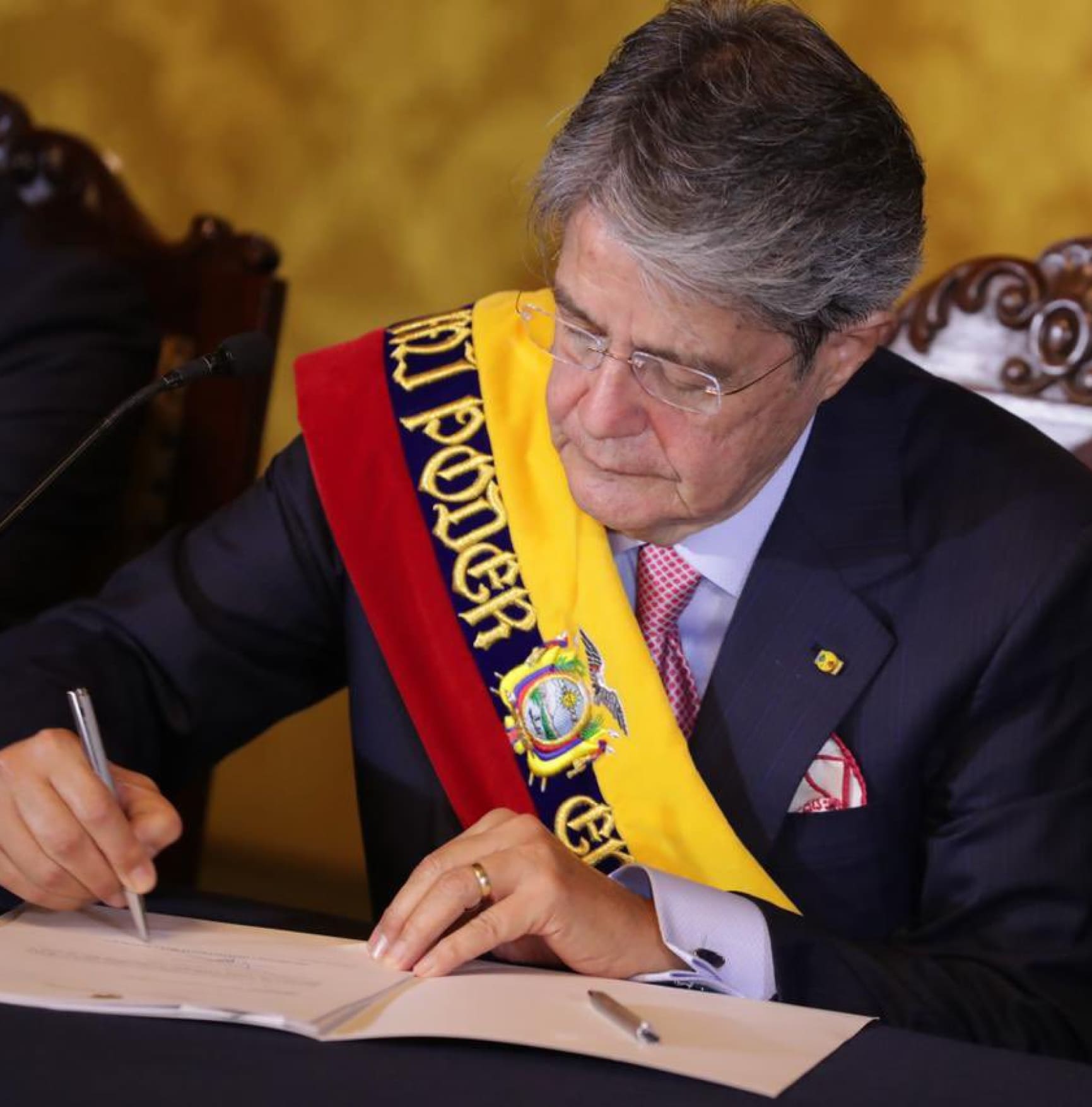
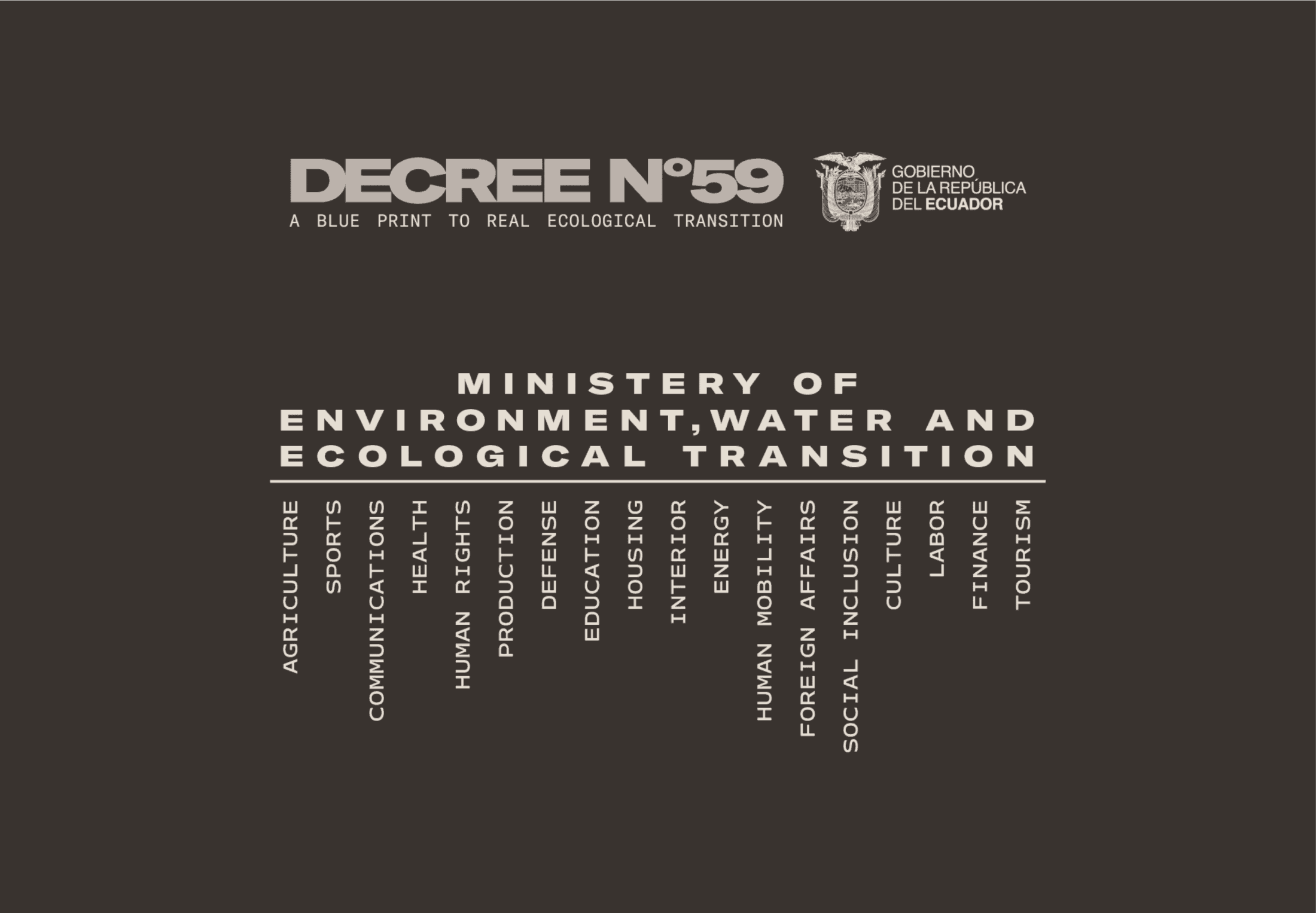
- The narrative
The renaming of the Ministerio del Ambiente, Agua y Transición Ecológica (MAATE, “Ministry of Environment, Water, and Ecological Transition”) was far more than a simple change; it was a transformative shift in narrative that established a clear direction for Ecuador. Including “ecological transition” in the ministry’s name not only unifies the population around a common goal but also aligns all government entities under a shared vision of sustainability.
This country-wide narrative, articulated through MAATE, enabled the implementation of large-scale environmental policies, fostering a cohesion that previously didn’t exist. Thanks to this cross-cutting approach, Ecuador not only embraced the goal but structured a clear path to achieve it, leading to historic progress in conservation, green employment, and biodiversity management.

- The visibility impact
The implementation of Ecuador’s Ministry of Environment, Water, and Ecological Transition (MATEA) garnered significant international attention, positioning the country as a leader in environmental policy. As the first nation in the Americas to establish such a ministry, Ecuador’s innovative approach attracted global media coverage and praise from prominent figures. Notably, former U.S. President Bill Clinton and renowned oceanographer Sylvia Earle publicly commended the initiative.
This widespread recognition enhanced Ecuador’s international standing, portraying it as a forward-thinking nation committed to sustainable development. Consequently, the country’s risk profile improved, and its national brand was strengthened, reflecting a dedication to ecological responsibility and future-oriented policies.

- The benefit for the country and the planet
The renaming and rebranding of Ecuador’s Ministry of Environment, Water, and Ecological Transition served as a catalyst for profound, cross-ministerial collaboration, allowing the government to tackle ecological and economic challenges holistically. This shift from isolated departmental efforts to a unified ecological transition narrative enabled a collective response to critical issues, with every government sector embracing sustainability as a core objective. As a result, Ecuador achieved landmark accomplishments, such as the world’s largest debt-for-nature swap, securing USD 1.6 billion to directly support biodiversity conservation and carbon footprint reduction.
Additionally, this cohesive approach has led to the expansion of protected areas by 42%, significant freshwater conservation efforts, and sustainable employment opportunities that bolster the local economy. By integrating ecological priorities into the government’s agenda, Ecuador is now positioned as a leader in environmental innovation, demonstrating how a strategic narrative shift can yield substantial outcomes across biodiversity, economic stability, and carbon reduction initiatives.
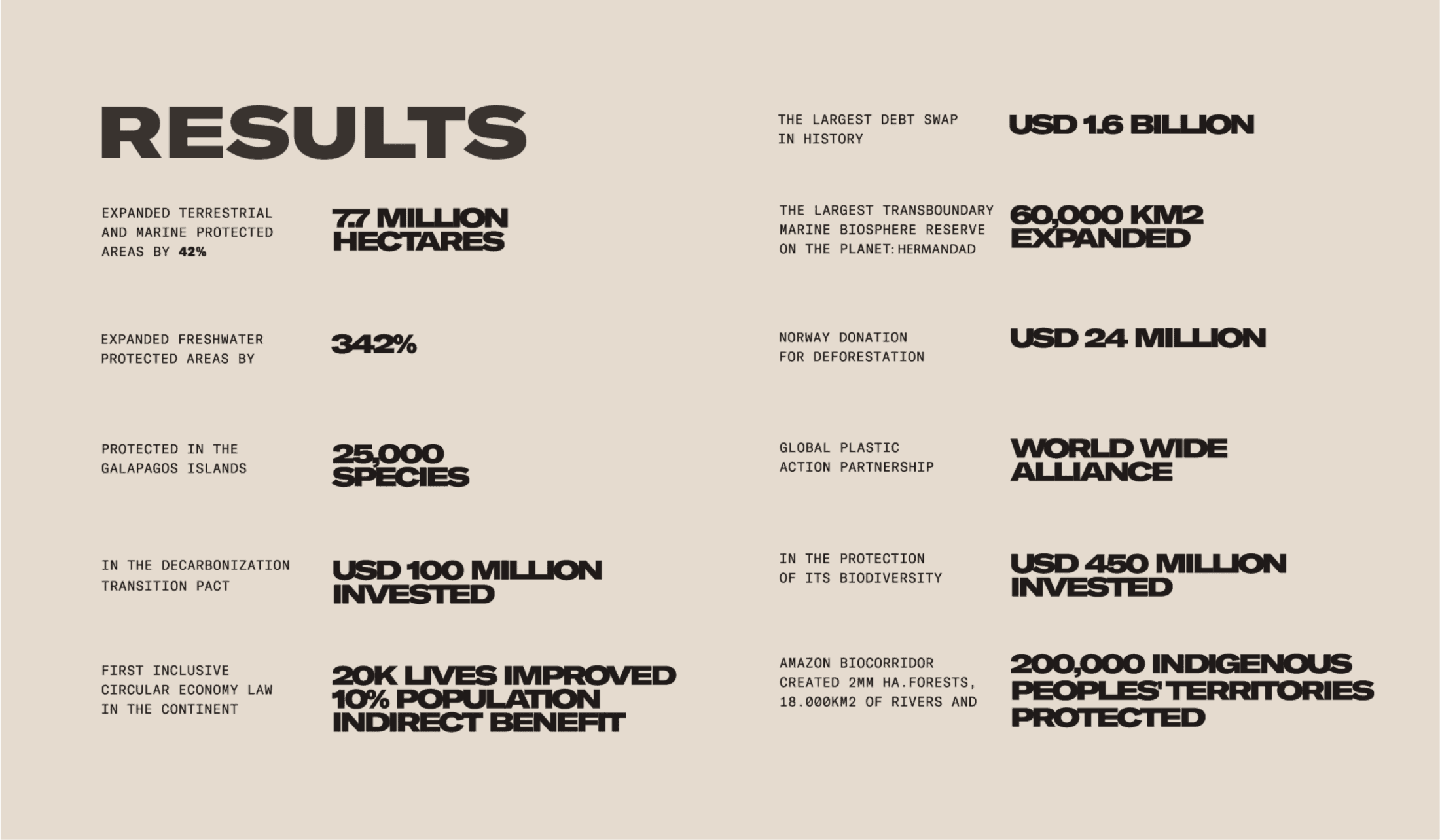
Two administrations have passed since the establishment of the MAATE (Ministry of Environment, Water, and Ecological Transition). Despite these changes in leadership, the MAATE remains a steadfast pillar of Ecuador’s governmental structure. This continuity demonstrates the strength and effectiveness of the ministry’s foundational shift, proving that the integration of ecological transition into the core of government operations has become a lasting legacy. The resilience of MAATE across different administrations reflects its essential role in Ecuador’s commitment to sustainability, environmental stewardship, and cross-ministerial collaboration for the long term.
